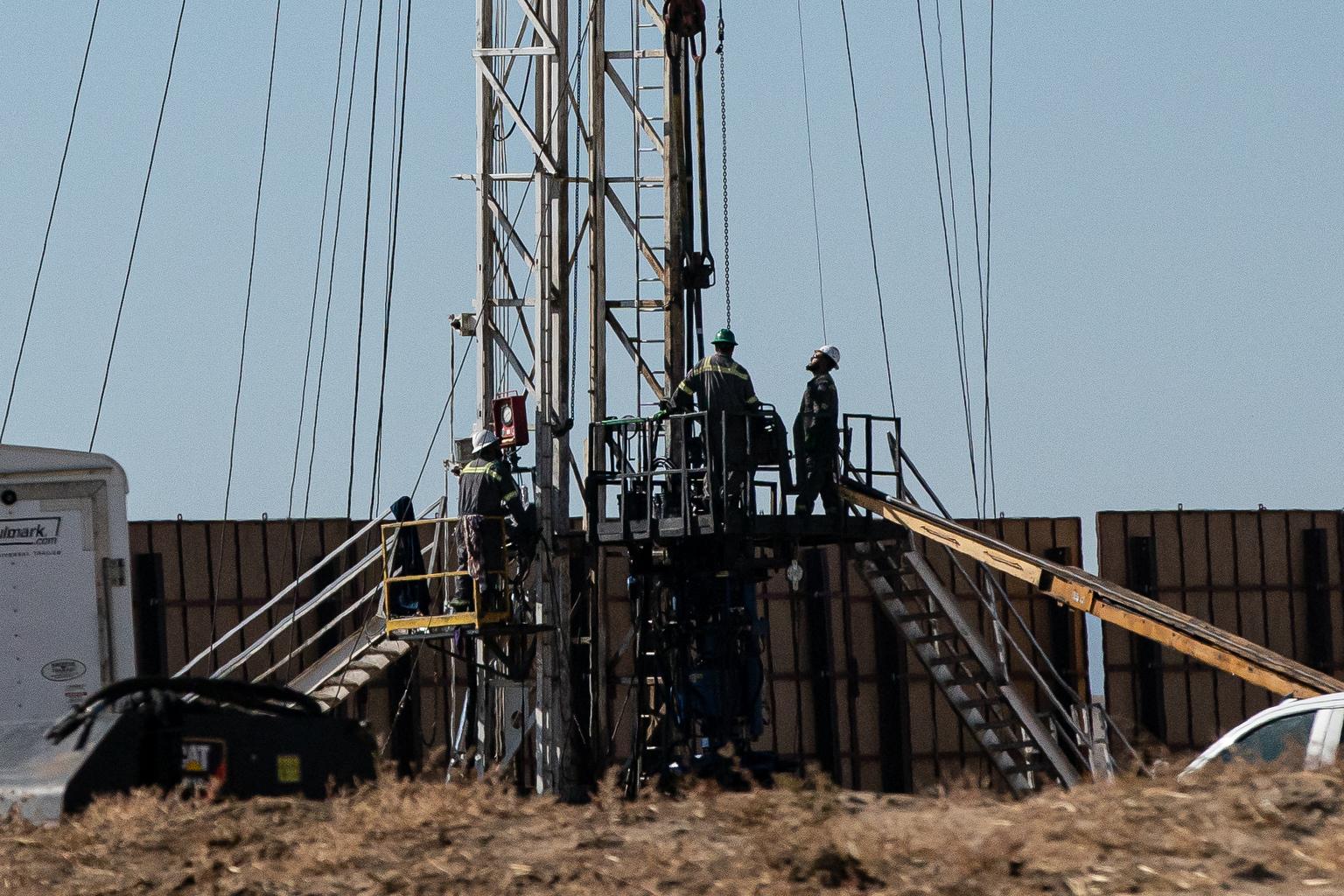
A package of bills designed to reduce Colorado’s summertime smog problem through an overhaul of state air pollution regulations is at the center of one of the most contentious lobbyist battles at the state Capitol this year.
The trio of bills, filed in February by Democratic lawmakers, would revamp the state’s approach to regulating air pollution through changes to permitting, enforcement, and establishing new industrial pollution rules. The proposal would expand the authority of state air regulators, step up financial penalties for companies that repeatedly violate pollution rules, and pause drilling during the summertime ozone season.
The individual bills have different aims, but as a legislative package, they’re one of the issues getting the most attention from lobbyists during the 2024 session, data from the Colorado Secretary of State compiled by CPR News show.
A large coalition of environmental, conservation, and public health groups including 350 Colorado, Earthworks, Earthjustice, Conservation Colorado, and CoPIRG, the state chapter of the Public Interest Network, have hired lobbyists to urge lawmakers to pass the legislation and argue the proposal would help Colorado rein in ground-level ozone, a dangerous lung irritant that has long plagued the Front Range and can shorten people’s lives and worsen other health problems.
Lobbyists for the oil and gas industry, construction companies, and business groups are working to defeat the proposal, which would effectively overhaul state air pollution regulations.
As many as 117 registered lobbyists are working one side or the other on one of the bills, are seeking amendments, or have told state officials they’re monitoring the proposals as of late this week. Other bills have 94 and 84 lobbyists working on them. Among those numbers are lobbyists working to persuade legislators on all three bills.
The Colorado Oil and Gas Association and the American Petroleum Institute Colorado excoriated the legislation the day it was announced, warning the proposal is a direct threat to the state’s oil and gas industry and could undermine the state’s economy.
Lobbyists hired by the state’s top fossil fuel groups are working to defeat all three of the bills in the legislative package.
The proposal includes Senate Bill 165, SB 166, and House Bill 1330, all opposition from major driller Civitas Resources, the Colorado Contractors Association, and the Colorado Competitive Council, which represents businesses across the state.
Rachel Beck, the council’s executive director, said manufacturers and other businesses have struggled to keep up with the pace of new pollution laws and regulations in Colorado, which have increased in recent years. That includes some agency rules that are a live issue currently under discussion that the proposed legislation appears poised to change.
“Projects that require air quality permits are not things that can be easily stood up or stood down,” Beck said in a phone interview with CPR News. “There's an element of planning that's required and investment that goes into these kinds of projects. And so that certainty is really important.”
Other powerful groups have hired lobbyists to defeat specific bills in the legislative package, state filings show.
The Senate bill that includes the summertime drilling moratorium and other new regulations has attracted the most opposition.
General business groups like the Denver Metro Chamber of Commerce, the Colorado Chamber of Commerce, and the Economic Development Council of Colorado have hired lobbyists to oppose the proposed legislation, as did the Colorado Bankers Association. In a statement, the association’s President and CEO Jenifer Waller said the group feels the proposal will hurt the state’s economy.
Organizations representing landscapers and concrete, stone, and gravel companies are working to defeat the Senate bill, too, including GCC, a Glendale-based company that produces cement and other products for the construction industry.
Adam DeVoe, an attorney for GCC, said the Senate bill and another one in the legislative package aimed at companies that repeatedly violate air quality rules, are unnecessary and “excessively punitive.”
“GCC is focused on the future of greenhouse gas reductions and sustainability, and none of these bills support our work to reduce greenhouse gas emissions, improve the environment, or protect the community in which we operate,” he said.
Lawmakers say much of the legislation is targeted at the fossil fuel industry, major industrial facilities, and the Suncor refinery in Commerce City, but bills in the legislative package are also on the radar of Xcel Energy and agricultural organizations, whose lobbyists indicated in filings they’re “monitoring” the bills on behalf wool and wheat growers and livestock producers.
The package of bills aimed at reducing ozone pollution was filed last week and only two of the proposals have been scheduled for upcoming committee hearings, one of the first steps for bills to become law. Gov. Jared Polis was not consulted when the legislation was being drafted, according to a spokesperson, which could hint at a tough path ahead — especially since it includes approaches to environmental regulation he’s already rejected.
Democratic lawmakers have filed other bills that target air pollution and the fossil fuel industry, including a recently filed bill aimed at reducing greenhouse gas emissions from major industrial sites. Another bill that would ban new permits to drill starting in 2030 has drawn intense opposition and heavy lobbying from fossil fuel and business groups, state data show.
- To improve Colorado air quality, state Democrats propose overhaul targeting pollution from Suncor, oil and gas
- Suncor Energy agrees to the largest air pollution penalty in Colorado history
- Why a new air quality bill is the latest in rift between Gov. Polis and environmental justice groups
- Colorado is set to consider a ‘fossil fuel phase-out.’ Here’s why that’s a big deal









